My Love for Guadagnino: A Deep Dive into the Genius of Luca Guadagnino
Luca Guadagnino's filmography is a testament to the power of intimate, nuanced storytelling. In a world that often craves spectacle, Guadagnino stands out by giving us stories that, while visually sumptuous and emotionally rich, are grounded in deep personal relationships, sensuality, and profound human moments. It’s rare to find a filmmaker whose work has so thoroughly explored the complex dance between love, pain, and identity, and Luca does it better than almost anyone.
The Early Beginnings: An Italian Foundation
Before diving into his remarkable career, it’s important to understand where Guadagnino comes from. Born in Palermo, Italy, in 1971, Guadagnino has always been steeped in a cultural context that is both rich and diverse. He grew up with a deep appreciation for both Italian art-house cinema and international influences, which would later inform his own unique style. Studying at the prestigious Università degli Studi di Palermo and later the University of Bologna, Guadagnino was not only interested in film, but in the arts as a whole—his intellectual approach to storytelling was informed by a background in philosophy and literature, giving his films a poetic gravitas.
Guadagnino’s love for film was nurtured in a family that valued both art and intellect. With a mother who was a painter and a father who was an academic, his childhood was steeped in creativity. Studying literature and philosophy at the University of Palermo and later at the University of Bologna, his education gave him a unique perspective on storytelling, blending intellectual depth with emotional authenticity. This foundation has been crucial in shaping his films, where every narrative choice is rooted in a thoughtful exploration of the human experience.
The Early Films: Building a Foundation
Guadagnino’s early works were not necessarily the crowd-pleasers he’s known for today, but they laid the groundwork for his more renowned works. His first feature film, The Protagonists (1999), was an intriguing, yet still somewhat rough, exploration of the Italian youth subculture, setting up the themes of love and emotional complexity that would become his trademarks. But it was his 2004 film Melissa P. that first showed a glimpse of his boldness as a storyteller. It was a controversial piece based on the book by the Italian author Melissa Panarello, known for its frank depiction of female sexuality. Guadagnino’s refusal to shy away from difficult subjects marked him as someone not afraid to explore the sensual and raw aspects of human experience.
Breaking Out: The Masterpiece that Changed Everything
The world truly began to take notice of Luca Guadagnino with I Am Love (2009). The film stars Tilda Swinton (a long-time collaborator) as a wealthy Russian matriarch who embarks on a passionate affair that changes her life. I Am Love isn't just a film; it’s a cinematic symphony. The film is dripping with sensuality, with each scene carefully crafted to highlight the nuances of love and loss. Guadagnino's visual style here is staggering—every shot is composed like a work of fine art. There is an almost painterly quality to his use of color, framing, and texture. But what really sets I Am Love apart is its emotional depth. Guadagnino allows the characters the space to breathe. This isn't just a story about a woman breaking free; it’s a meditation on the ways in which our desires, no matter how taboo, are sometimes the only things that make us feel truly alive.
The Age of Desire: Call Me By Your Name and the Journey to Fame
If Guadagnino had not already established himself as a force to be reckoned with,Call Me By Your Name (2017) solidified his place in cinematic history. Based on the novel by André Aciman, Call Me By Your Name explores the blossoming relationship between a 17-year-old boy (Timothée Chalamet) and his father's guest (Armie Hammer) in the summer of 1983. What struck audiences most about Call Me By Your Name was how Guadagnino captured the aching beauty of young love. His delicate direction turns the film into more than a coming-of-age story; it becomes a celebration of fleeting moments. The way he uses the Italian countryside, the languorous pacing, and his careful use of music (such as Sufjan Stevens’ “Mystery of Love”) brings a depth to the film that makes it feel timeless. The film also reveals Guadagnino’s skill at drawing out exquisite performances. Chalamet’s portrayal of Elio, torn between love and loss, is unforgettable and solidified him as one of the best actors of his generation. This film earned Guadagnino an Academy Award nomination and gave him worldwide recognition.
The Director's Signature: Exploring Sensuality, Identity, and Depth
One thing that stands out in all of Guadagnino’s works is his exploration of sensuality—not just in the sexual sense, but in the tactile, the lived-in. His characters exist in spaces that feel textured. Take Suspiria (2018), for instance, his bold remake of the 1977 Dario Argento classic. While it might have seemed like a strange departure from his previous works, it was also a brilliant way for Guadagnino to show how he can create tension and unease. Suspiria is an extraordinary film—raw, brutal, and, at times, hypnotic. It’s a film about trauma, power, and the body. Guadagnino’s deliberate, slow-burn pace mirrors the anguish the characters experience as they move through the oppressive, eerie halls of the dance academy.
But sensuality, as previously mentioned, is not merely physical; it's emotional. Guadagnino’s characters, especially his women, are allowed to be fully realized. Their desires, emotions, and flaws are written and performed with an authenticity that’s hard to find in mainstream cinema. His lens always lingers on the subtle moments—the touch of a hand, a shared glance, the weight of silence between people. These small details speak volumes. He isn’t just interested in the external plot points of a character's journey; he’s focused on the internal—what makes a person who they are and what makes them tick.
Not Just a Director, But a Collaborator
Guadagnino’s partnership with Tilda Swinton is perhaps one of the most well-known in contemporary cinema. Their collaborations are numerous and fruitful—I Am Love, A Bigger Splash (2015), and Suspiria are all products of this creative partnership. Swinton’s ability to express complex emotions with few words is matched perfectly by Guadagnino’s direction, and together they have created some of the most emotionally resonant films of the last decade.
Yet, Guadagnino is not one to rest on his laurels with just one actress. His cast choices are always thoughtful and purposeful. He pulls out incredible performances from his actors, whether they are first-time performers or established stars. Take, for instance, the cast of Call Me By Your Name. Both Timothée Chalamet and Armie Hammer were relatively unknown to a wider audience at the time, but Guadagnino’s belief in their ability to bring his story to life is evident in the way they perform. The characters are raw and vulnerable, and their chemistry is undeniable. Guadagnino’s ability to draw such intensity from his actors is nothing short of brilliant.
The Future of Guadagnino: A Cinematic Force to Be Reckoned With
So, what’s next for Luca Guadagnino? It’s safe to say that whatever he does, it will be bold, emotionally nuanced, and visually stunning. His recent works, such as Bones and All (2022), continue to showcase his signature style of blending beauty with discomfort, seduction with horror. The future looks incredibly bright for Guadagnino. If his past works are any indication, he will continue to push boundaries, telling stories that challenge, enchant, and leave us forever changed.
In an industry that is constantly looking for the next big thing, Luca Guadagnino remains one of the most exciting and visionary filmmakers of our time. His exploration of love, identity, sensuality, and emotional complexity makes him a unique voice in modern cinema. His films are more than just stories—they are experiences that engage the heart, mind, and soul. And that, in my opinion, is what makes him one of the greatest filmmakers working today.
I could go on and on and on about Luca Guadagnino, because honestly, I’m a craver for his art. I’ll admit it—there’s something about his films that just grabs me, pulls me in, and makes me feel something deep. The truth is, every time he releases a film, it’s like a hidden gem waiting to be uncovered, often underrated from the very moment it premieres. It’s like a pre-underestimated masterpiece that slowly, over time, reveals its brI could go on and on and on about Luca Guadagnino, because honestly, I’m a craver for his art. I’ll admit it—there’s something about his films that just grabs me, pulls me in, and makes me feel something deep. The truth is, every time he releases a film, it’s like a hidden gem waiting to be uncovered, often underrated from the very moment it premieres. It’s like a pre-underestimated masterpiece that slowly, over time, reveals its brilliance. Guadagnino pours so much of his soul into his work, each piece feels like it holds a personal significance to him, and that’s something to be cherished. It's the kind of dedication to craft that deserves to be not only respected but admired—because he’s not just making movies, he’s creating experiences that linger long after the credits roll.
Happy to inform. Make sure to subscribe! Please share, like, and comment. Looking forward to what everyone thinks of the Filmstack Newsletter. If you have any feedback or think I’ve missed something, I’d be happy to edit and add it in.
Until next time, and make sure to live in the moment - one frame at a time.






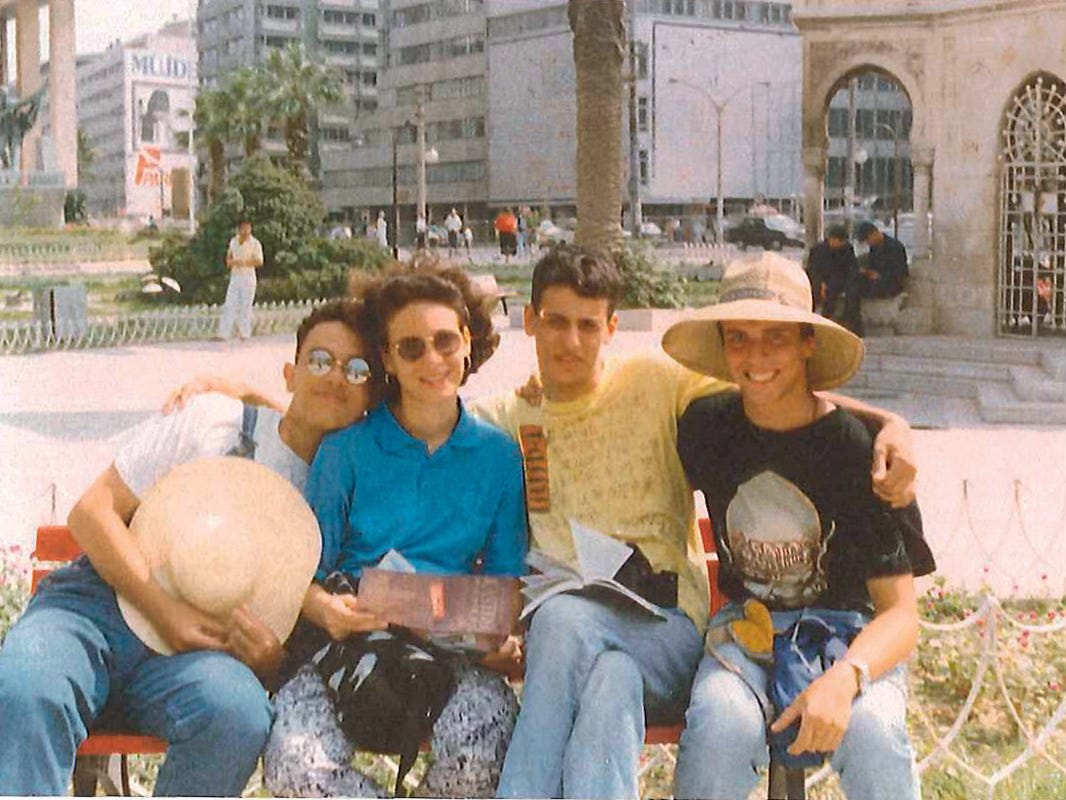
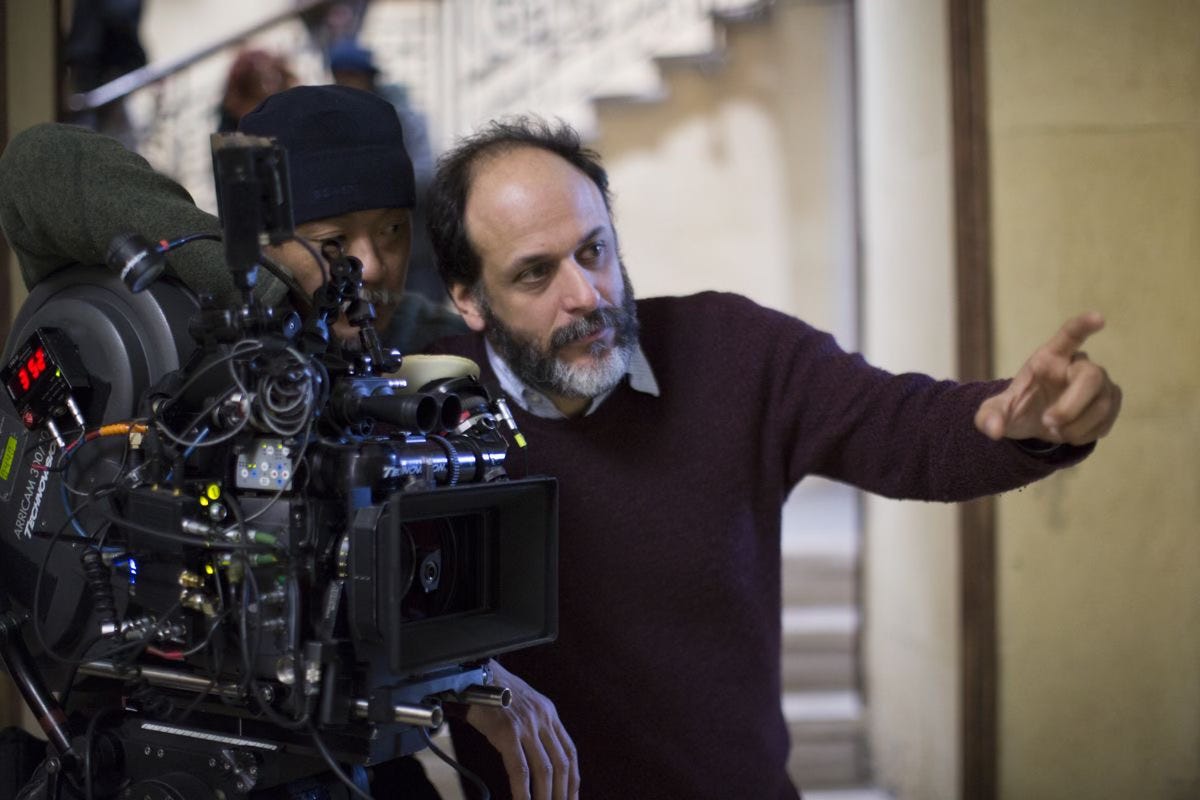
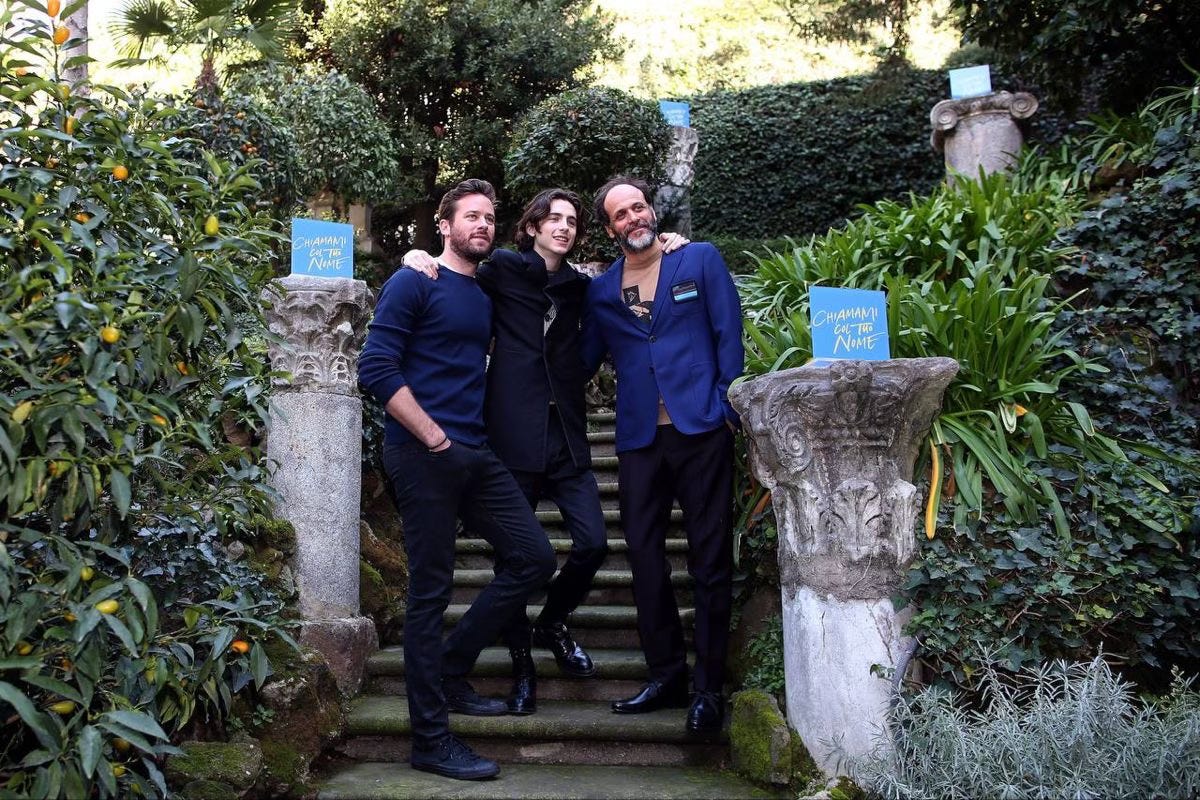
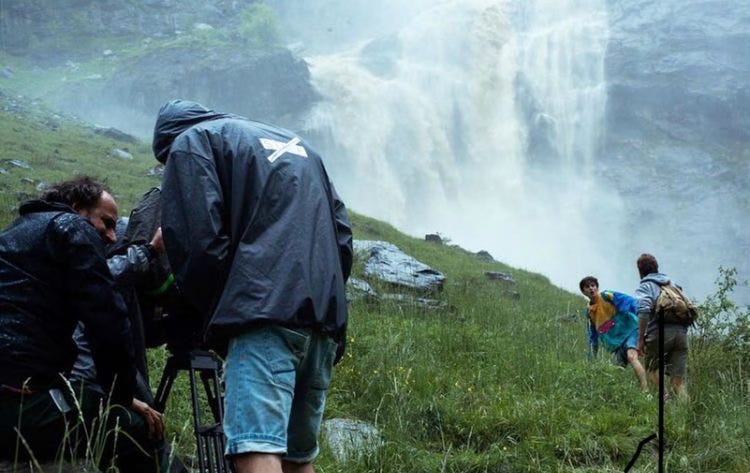
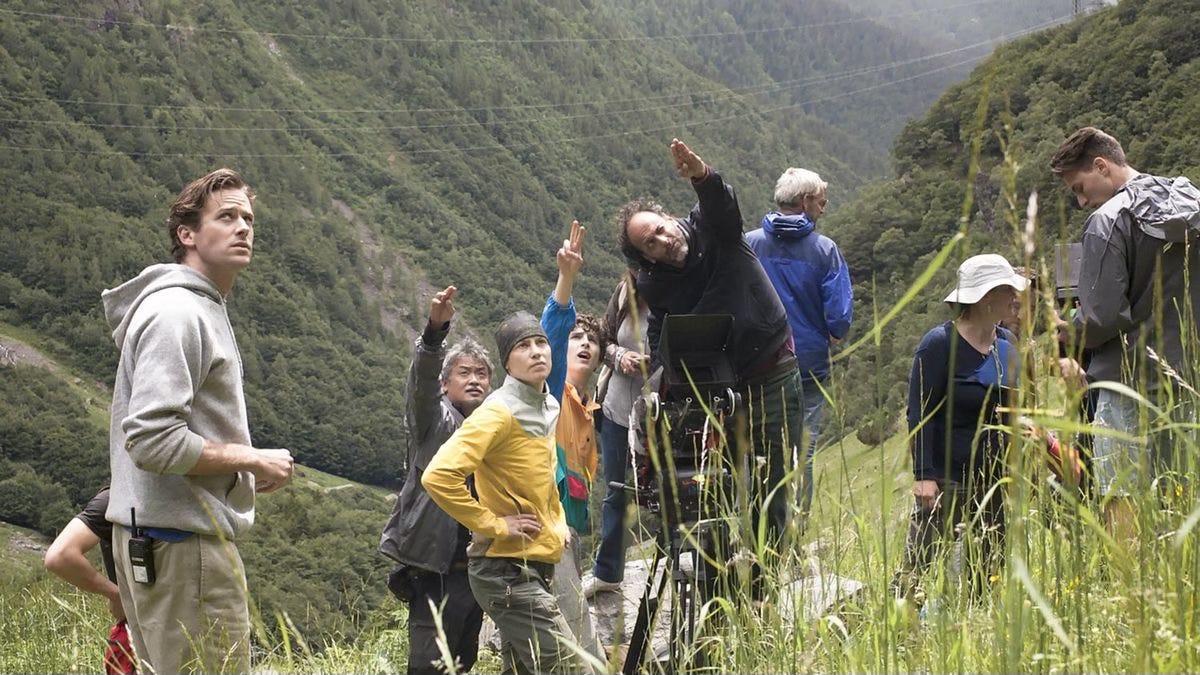

Thank you for this wonderful piece on one of my favorite contemporary directors! I've been a Guadagnino fan ever since I saw "I Am Love" in its theatrical release. Since then, I've followed his career with interest, but I didn't know anything about his early life until I read this post. Also, I'm very distraught that Guadagnino made two great films this year - "Challengers" and "Queer" yet didn't get a single Oscar nomination for either himself or his collaborators. That just isn't right. Even so, I'm excited to see what he makes for his next film.
Subscribed. Do subscribe